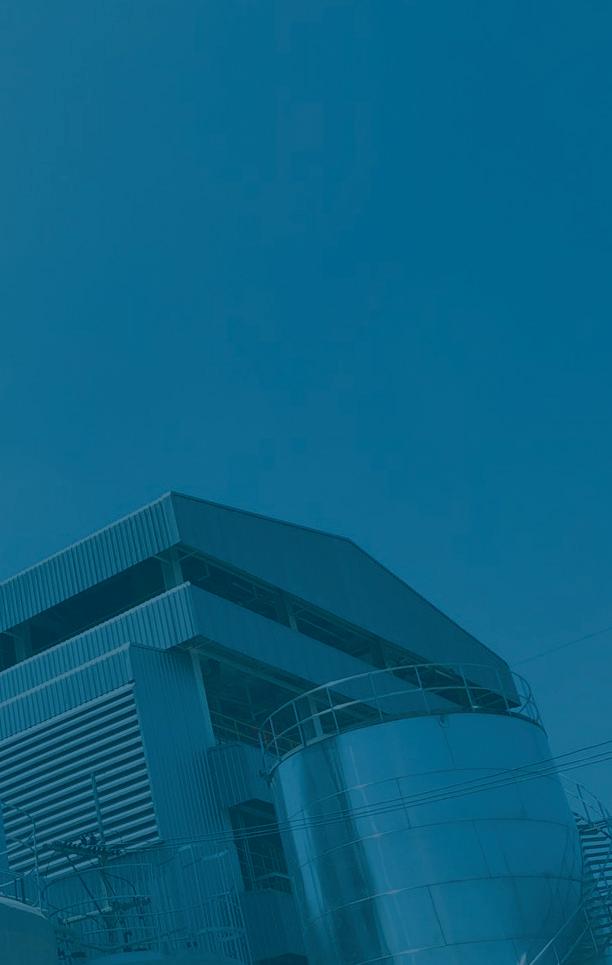
4 minute read
Elevance sells biorefinery stake back to Genting
IN BRIEF
ITALY/USA: NextChem, a subsidiary of Italy’s Maire Tecnimont Group, and US-based Saola Energy have formed an alliance to produce renewable diesel, suitable for both small bolton facilities and large plants. The companies will work together to license a technology for the production of renewable diesel (hydrotreated vegetable oil or HVO) from vegetable oils and residual fats.
NextChem will be the licensor of the combined technology and will provide clients with engineering, procurement and construction services and training. Saola Energy’s patented technology consists of a hydrotreatment step followed by isomerisation.
THE NETHERLANDS: Dutch renewable chemicals company Avantium has announced it will build its furandicarboxylic acid (FDCA) flagship plant at Chemie Park Delfzijl, Bio Market Insights reported on 13 January
The 5,000 tonne facility will produce plant-based FDCA – a key building block for many chemicals and plastics such as polyethylene furanoate (PEF).
The plant will be located near the company’s demonstration plant for plant-based mono-ethylene glycol (MEG) and its pilot biorefinery.
Elevance sells biorefinery stake back to Genting
Malaysia’s Genting Plantations Bhd (GENP) is buying back a 25% stake in a planned biorefinery plant from US technology partner Elevance Renewable Sciences, the Star newspaper reported on 12 February.
GENP had planned to convert a 200,000 tonnes/year biodiesel facility at Sabah state’s Palm Oil Industrial Cluster in Lahad Datu into a high value palm oil derivatives producer using Elevance’s metathesis technology, the Star said. However, Elevance had told GENP that it would not invest further in the 240,000 tonnes/year Genting Integrated Biorefinery (GIB) because it was restructuring. GENP therefore decided to buy back its 25% stake for RM64M (US$15.4M). “Upon completion of the proposed transactions, GIB will become a wholly-owned subsidiary of Genting Plantations and will continue to hold the metathesis licence,” GENP said. “This will allow GIB the flexibility to pursue the metathesis plant in future.” The Edge Financial Daily said the original aim of the partnership was to enable GENP to vertically integrate into value-added downstream activities, reducing its dependency on the cyclical nature of its upstream oil palm plantation business.
GENP owns 247,400ha of land and 11 oil mills in Malaysia and Indonesia.
Elevance uses a selective metathesis catalyst to derive speciality chemicals and olefins from natural oils, which can be used in a wide range of applications including detergents, coatings, personal care, chemicals and engineered polymers. “Central to the Elevance biorefinery process is the cross metathesis of natural oils with light olefins, such as 1-butene, to yield a series of higher-value speciality intermediates,” the company said on its website. “Metathesised triglycerides (mTAGs) are truncated versions of the natural oil feedstock. Following separation of renewable olefin co-products, mTAGs are further converted into novel mid-chain length unsaturated methyl esters using standard oleochemical processes.”
Elevance currently operates a 180,000 tonne/ year joint venture biorefinery with Asian agribusiness group Wilmar International in Gresik, Indonesia. The plant was commissioned in 2013 and uses palm oil and palm olein as feedstocks.
Lipase enzyme sourced from mustard oil cake Scientists from the UK and India have recycled the by-products of mustard oil production to develop an enzyme that can be used in commercial laundry detergents, Labiotech.eu reported on 27 February.
“Oil cakes that are the by-products of oil extraction have a protein content of 30-40%,” explained Pattanathu Rahman, a microbial biotechnologist from the centre of enzyme innovation at the UK’s University of Portsmouth. “We used those oil cakes as a feedstock for bacteria to produce industrially-important lipase enzymes.” Labiotech.eu wrote that the use of lipases in laundry detergents was rising because there were more eco-friendly than their phosphate-based counterparts and had a better ability to remove oil stains without harming the texture of clothing.
Eni plans 5M tonnes of palm oil free HVO capacity by 2050 Italian oil and gas firm Eni Spa plans to increase its bio-refining capacity to 5M tonnes/year as part of its long-term strategic plan to 2050, announced on 28 February.
The company currently produces around 1M tonnes/year of hydrotreated vegetable oil (HVO) using palm oil and waste feedstocks. It said it would gradually convert its Italian sites to reach 5M tonnes/year of capacity, supplied exclusively with second and third generation ‘palm oil free’ feedstocks by 2023, seven years ahead of the EU’s ban on use of the oil in biofuel production. Target areas would be the Far and Middle East, Europe for biojet fuel production and the USA. Eni currently produces HVO, naptha, bio jet fuel and LPG at its 750,000 tonnes/year biorefinery in Gela, launched in August 2019, and a 250,000 tonnes/ year plant in Venice, which began operations in 2014.
“The production of oil and gas is expected to reach a plateau in 2025,” said Eni CEO Claudio Descalzi. “The result will be a portfolio that is more balanced and integrated ... we have designed a strategy that combines economic and environmental sustainability.”
LEADER IN OIL PRE-TREATMENT PLANTS FOR HVO AND BIODIESEL PRODUCTION.


www.technoilogy.it
EXPERTS IN: EDIBLE OIL EXTRACTION AND REFINING • OLEOCHEMICALS • BIODIESEL PRODUCTION • LUBE OIL RE-REFINING
The new benchmark in extracting liquids.

HF Press+LipidTech Phone: +49 40 77179-122 Fax: +49 40 77179-325 E-Mail: info@hf-group.com www.hf-press-lipidtech.com • Process design • Crude oil processing • Pressing & Refining plants • Screw presses Your leading partner for:
• Disc driers • Sterilizers • Meat slurry vessels • Spare parts & Services










